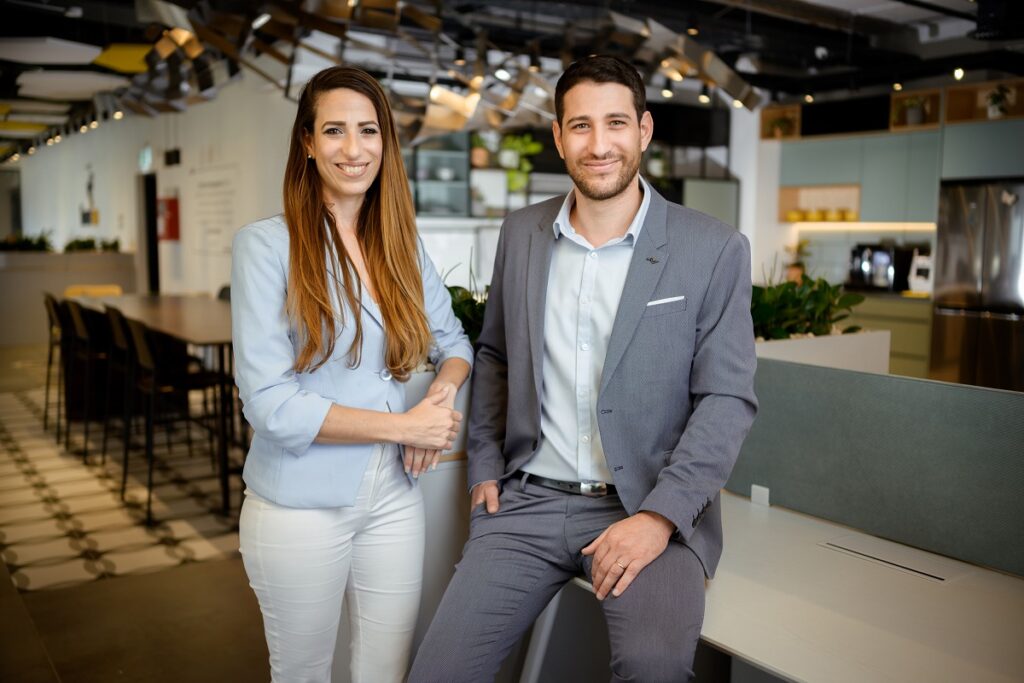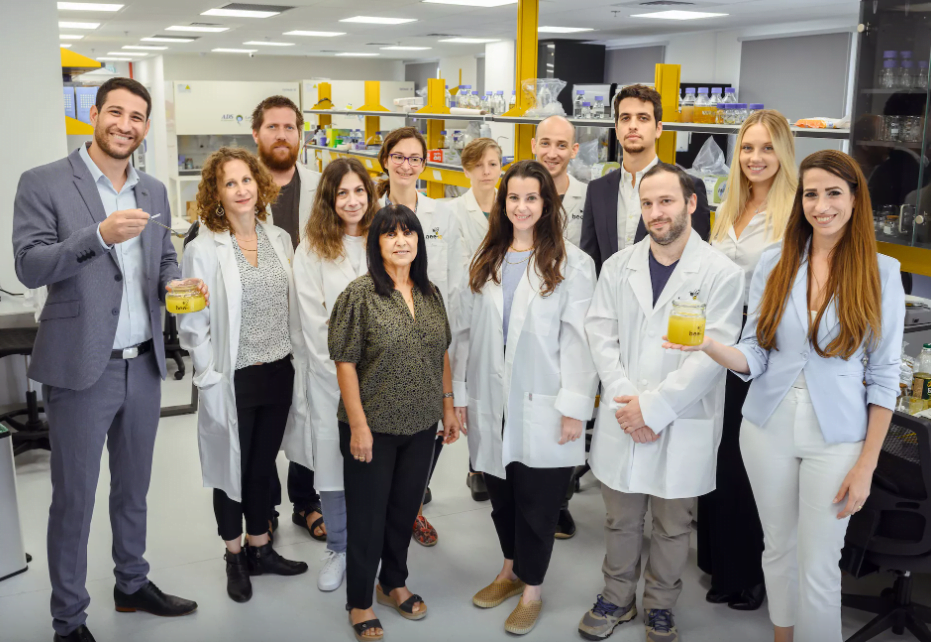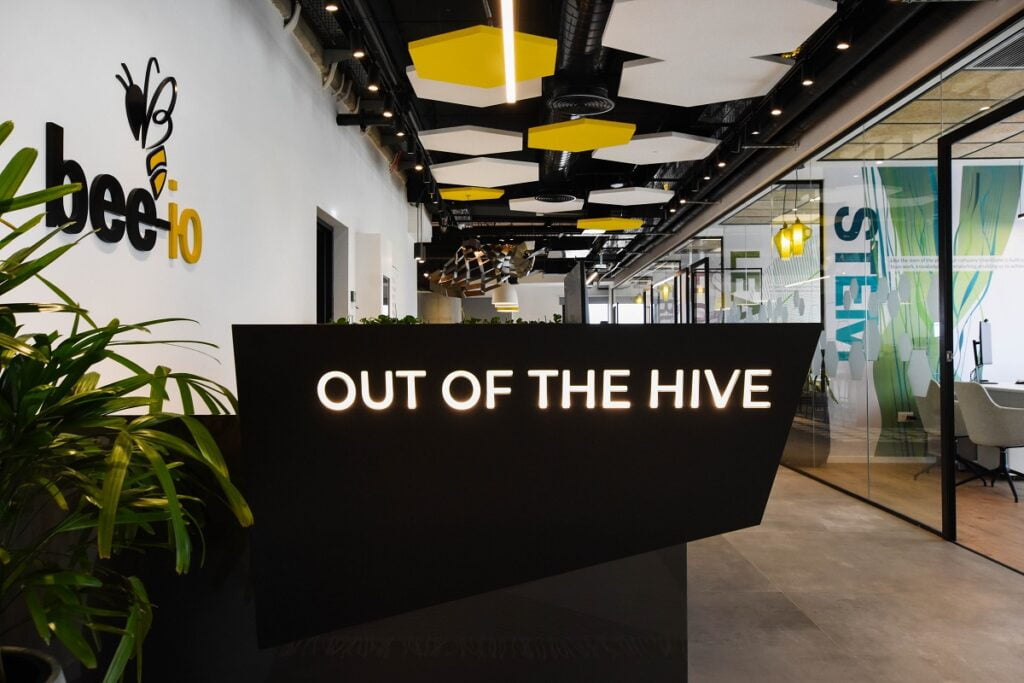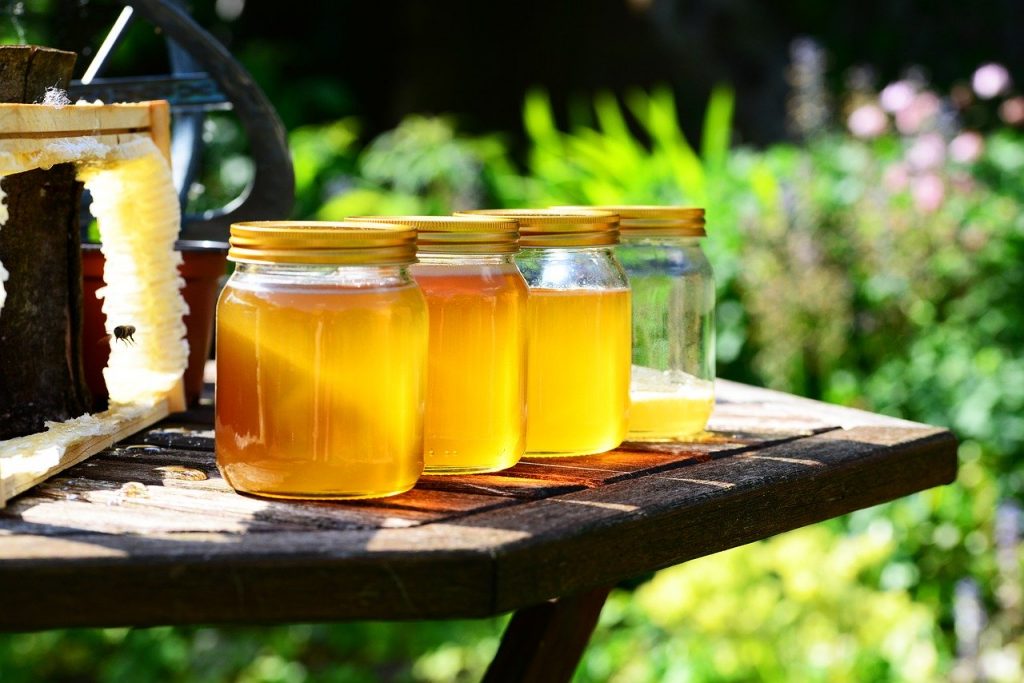“Did you know the world is running out of honey?” asks vlogger Nusseir Yassin — also known as Nas Daily — in one of his latest one-minute viral video clips on Instagram, “Only seven bees out of 20,000 types of bees make honey. And they’re dying because we’re abusing them.”
He’s not wrong. “We as humans want to use those seven species to pollinate but also to get the honey that they’re making and sell it because it’s so expensive. So we choose these seven over and over again from the other 20,000 different species. What happened — and we see it now in articles in science magazines and even in Israel — that we are pushing them into extinction,” Ofir Dvash, CEO and co-founder of Bee-io Honey, tells NoCamels. Pushing these species helps push other species into extinction, and “the other species are very important to the balance of our environment,” he adds.
The clip, which earned Nas, known for his videos of people and companies making a difference, a whopping 1.4 million views, calls to attention Dvash and his team at Israeli startup Bee-io Honey. The company is using Israeli-developed research and tech to create its own solution to combat the global honey problem — without the need for bees.
Founded in 2021, the Bee-io Honey team has been developing cultured honey in a lab in Rehovot Science Park lab using natural nectar from plants and bee protein. Since May, the company has been traded on the Tel Aviv Stock Exchange under the symbol BHNY at an $11 million market cap after merging with shell company Whitestone group.
Bee-io already has six patents filed in the United States regarding the different processes and technologies that they are developing in honey and the firm announced this month that two of its international patents filed received positive criticism from the PCT (Patent Cooperation Treaty), the international patent system, and are accelerated to the national stage in the United States.
“This is the last stage before we hopefully get an approval patent,” says Dvash. “So regarding cultivated honey, we will be the first company ever in the world that will have two patents regarding cultivated honey and our technology.”
The approval, translated into English, reads that Bee-io was successful in producing cultured royal jelly protein in an accurate fermentation process using a bioreactor as a preliminary stage or mass production and also successfully completed an experiment proving that the protein has antibacterial properties.
“We developed a very unique technology that allows us to mimic the process of natural honey. We are able to produce proteins in microorganisms [using] bioreactors [and] fermentation processes, and in that way we are not required to use bees,” Dvash explains. “The bees that go to the flower and drink the nectar have a special stomach and it is creating enzymes in the body and putting them in the stomach together with the nectar. Different sugars are dismantled and create honey, which the bee regurgitates into the honeycomb later. We are mimicking the process [using nectar from plants and bee protein] in order to create a product that is almost identical to natural honey,” Dvash explains.

The global honey market was estimated to be worth some $8.58 billion in 2021, according to Grand View Research, an India and US-based market research and consulting firm headquartered in San Francisco, California. Honey is considered an excellent source of numerous nutritional ingredients, including vitamins, minerals, calcium, and antioxidants, and food and cosmetics products, from sweeteners to serums, containing honey have been in high demand, particularly in the wake of the COVID-19 pandemic due to antibacterial, antiviral, and anti-fungal properties. The global honey market is expected to reach as much as $14.4 billion by 2025.
But that means a lot of work for the seven species of bees, who have come to command the attention of pollinators. Meanwhile, those species are also succumbing to pesticides, climate change, and diseases, while making it difficult for the remaining bee types to replenish their own population.
Cultured honey, for its part, does not contain antibiotics, pesticides, chemicals, or toxins, says Dvash. It removes the need to use bees for its production, while allowing on-demand production, regardless of seasons, weather, or climate change,” he adds.
Sign up for our free weekly newsletter
Subscribe“We are able to choose the different plants and flowers that we are making our honey from and we are able to make honey without any chemicals, antibiotics, and botulism,” says Dvash. (Botulism is a rare and potentially fatal illness caused by a toxin produced by the bacterium Clostridium botulinum. Honey is a known dietary reservoir of C. botulinum spores and has been linked to infant botulism.) “Our honey has all the good qualities, and we take out the bad qualities that are now very much available in natural honey that we buy in the supermarkets.”
Dvash tells NoCamels that the company aims to commercialize its cultured honey as soon as possible and that they are now working on regulation.

“Regarding the US markets, we hope that in the next year or so we can open a facility and production facility in the United States,” he says.
We want to commercialize them as soon as possible. We are now working on regulations. And regarding the US markets, we hope that in the next year or so we can open a facility and production facility in the United States.
The goal is to bring a wide range of different kinds of honey to the supermarket, including lavender honey, Camila honey, and even coffee-flavored honey.
“Coffee plants have a really low amount of nectar in their flowers. And there are only certain places that are growing coffee. So not a lot of coffee honey is being made. Even if we want, nature is not able to produce enough. We are able with our technology to bring exotic honey to the public in an affordable way.”
Why honey?
Arik Kaufman, a co-founder of Israeli cultured meat and 3D printed steaks company MeaTech and cultivated milk BioMilk (now known as Wilk), and one of the founders of KRKR law firm, realized from his work with these food tech startups was a real need to create cultured food products using technology and that there must be a way to create a cultured honey product. He decided to reach out to engineer Ofir Dvash, then CTO of Innovation and Growth at startup incubator GKI Group, who also served in special operations technology Unit 81 in the Israel Defense Forces (IDF) and the two came up with a plan to develop tech that would do this. Dvash then brought on his sister Efrat Dvash Riesenfeld, a PhD in molecular genetics from the Weizmann Institute of Science and a postdoctoral fellow from Harvard Medical School.

He tells NoCamels he felt immediately connected to the subject. For one, his last name happened to be Dvash, a word that means honey in Hebrew. Second, he and his sister grew up on Moshav Hatzav in southern Israel where his father grew tomatoes in the family greenhouse and the siblings had to be the bees of the operation. Since the tomatoes were raised in a closed greenhouse, there was nothing to pollinate the flowers to grow them, so the brother and sister “did the work of a bee” by shaking the plants.
“When I heard that a third of the bee population was becoming extinct, it just rang a bell for me,” he says, “I feel like I was chosen.”
Related posts

Resilient And Nutritious New Plant-Based Milk Aims To Make A Splash

Chocolate From Cultivated Cocoa Comes Without Environmental Toll

Plastic Fantastic: Startup Takes PVC Back To Its Crude Oil Roots




Facebook comments